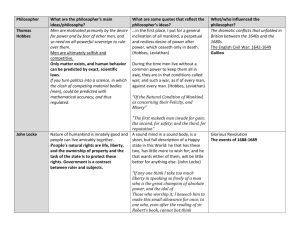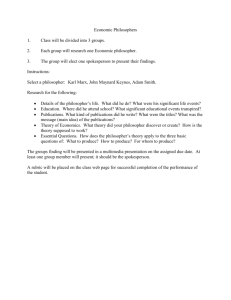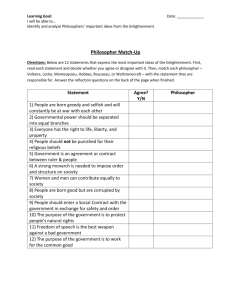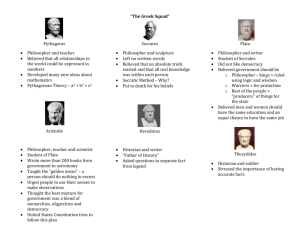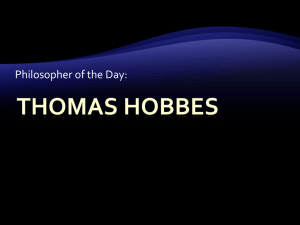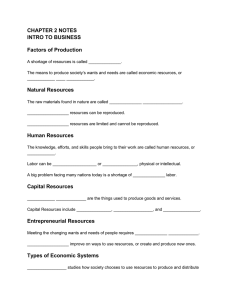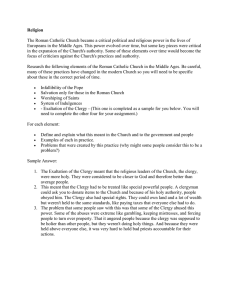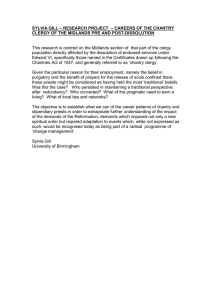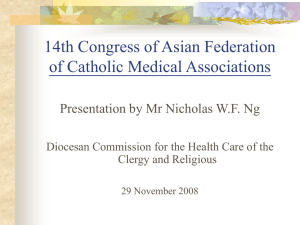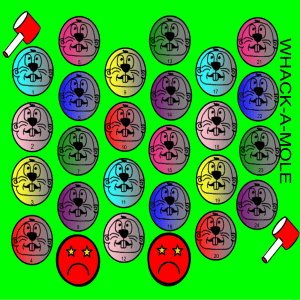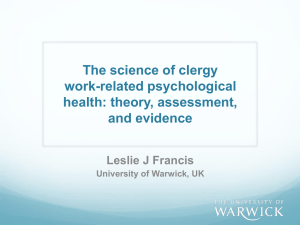The Enlightenment Chapter 24
advertisement
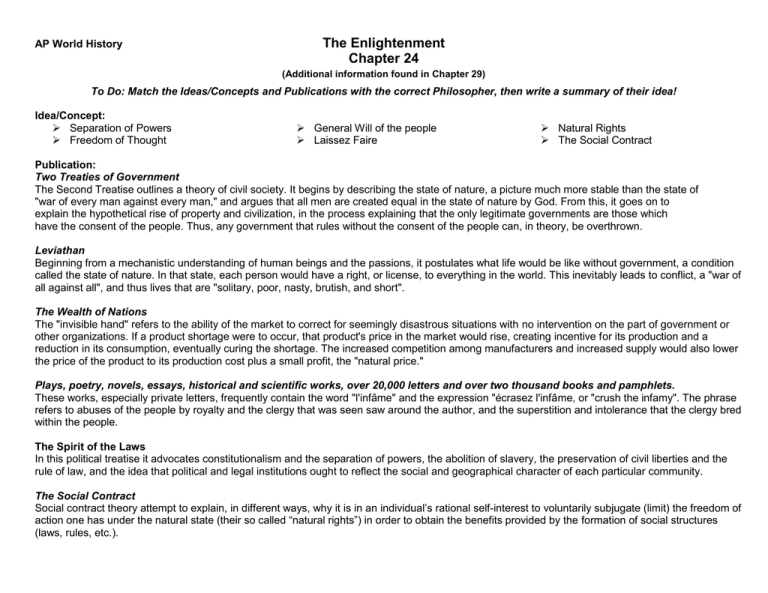
AP World History The Enlightenment Chapter 24 (Additional information found in Chapter 29) To Do: Match the Ideas/Concepts and Publications with the correct Philosopher, then write a summary of their idea! Idea/Concept: Separation of Powers Freedom of Thought General Will of the people Laissez Faire Natural Rights The Social Contract Publication: Two Treaties of Government The Second Treatise outlines a theory of civil society. It begins by describing the state of nature, a picture much more stable than the state of "war of every man against every man," and argues that all men are created equal in the state of nature by God. From this, it goes on to explain the hypothetical rise of property and civilization, in the process explaining that the only legitimate governments are those which have the consent of the people. Thus, any government that rules without the consent of the people can, in theory, be overthrown. Leviathan Beginning from a mechanistic understanding of human beings and the passions, it postulates what life would be like without government, a condition called the state of nature. In that state, each person would have a right, or license, to everything in the world. This inevitably leads to conflict, a "war of all against all", and thus lives that are "solitary, poor, nasty, brutish, and short". The Wealth of Nations The "invisible hand" refers to the ability of the market to correct for seemingly disastrous situations with no intervention on the part of government or other organizations. If a product shortage were to occur, that product's price in the market would rise, creating incentive for its production and a reduction in its consumption, eventually curing the shortage. The increased competition among manufacturers and increased supply would also lower the price of the product to its production cost plus a small profit, the "natural price." Plays, poetry, novels, essays, historical and scientific works, over 20,000 letters and over two thousand books and pamphlets. These works, especially private letters, frequently contain the word "l'infâme" and the expression "écrasez l'infâme, or "crush the infamy". The phrase refers to abuses of the people by royalty and the clergy that was seen saw around the author, and the superstition and intolerance that the clergy bred within the people. The Spirit of the Laws In this political treatise it advocates constitutionalism and the separation of powers, the abolition of slavery, the preservation of civil liberties and the rule of law, and the idea that political and legal institutions ought to reflect the social and geographical character of each particular community. The Social Contract Social contract theory attempt to explain, in different ways, why it is in an individual’s rational self-interest to voluntarily subjugate (limit) the freedom of action one has under the natural state (their so called “natural rights”) in order to obtain the benefits provided by the formation of social structures (laws, rules, etc.). Philosopher Thomas Hobbes John Locke Montesquieu Voltaire Jean-Jacques Rousseau Adam Smith Idea/Concept Publication Summary
